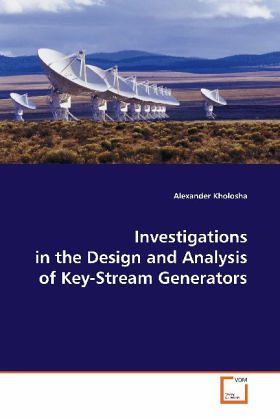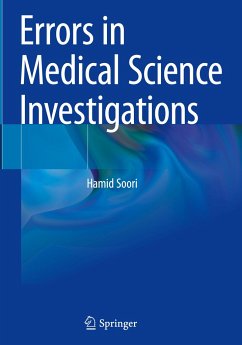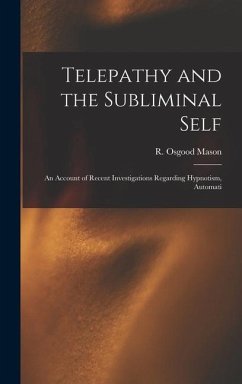
Investigations in the Design and Analysis of Key-Stream Generators
Versandkostenfrei!
Versandfertig in 6-10 Tagen
32,99 €
inkl. MwSt.

PAYBACK Punkte
16 °P sammeln!
The work is focused on several important problems in the design and analysis of key-stream generators for stream ciphers. We look at common building blocks that are used in key-stream generators. These are nonlinear logical functions and clock-controlled linear feedback shift registers (LFSR). We introduce tensor transform which gives new tools for analyzing security of the functions. We also study correlation properties of Boolean functions. A newly introduced probabilistic function of a Boolean function estimates the probabilistic distribution of its output bits if the distribution of the ar...
The work is focused on several important problems in
the design and analysis of key-stream generators for
stream ciphers. We look at common building blocks
that are used in key-stream generators. These are
nonlinear logical functions and clock-controlled
linear feedback shift registers (LFSR). We introduce
tensor transform which gives new tools for analyzing
security of the functions. We also study correlation
properties of Boolean functions. A newly introduced
probabilistic function of a Boolean function
estimates the probabilistic distribution of its
output bits if the distribution of the arguments,
the function depends on, is known. For a clock-
controlled LFSR, we estimate the period of its
output sequence when the feedback polynomial is
irreducible and the structure of the control
sequence is arbitrary. Away from building blocks, we
construct a key-stream generator based on the one
suggested by Geffe. Unlike the Geffe generator that
has three binary input m-sequences, this generator
runs over the extension field and combines multiple
inputs having arbitrary periods. Finally, we develop
several statistical attacks on stream ciphers.
the design and analysis of key-stream generators for
stream ciphers. We look at common building blocks
that are used in key-stream generators. These are
nonlinear logical functions and clock-controlled
linear feedback shift registers (LFSR). We introduce
tensor transform which gives new tools for analyzing
security of the functions. We also study correlation
properties of Boolean functions. A newly introduced
probabilistic function of a Boolean function
estimates the probabilistic distribution of its
output bits if the distribution of the arguments,
the function depends on, is known. For a clock-
controlled LFSR, we estimate the period of its
output sequence when the feedback polynomial is
irreducible and the structure of the control
sequence is arbitrary. Away from building blocks, we
construct a key-stream generator based on the one
suggested by Geffe. Unlike the Geffe generator that
has three binary input m-sequences, this generator
runs over the extension field and combines multiple
inputs having arbitrary periods. Finally, we develop
several statistical attacks on stream ciphers.












